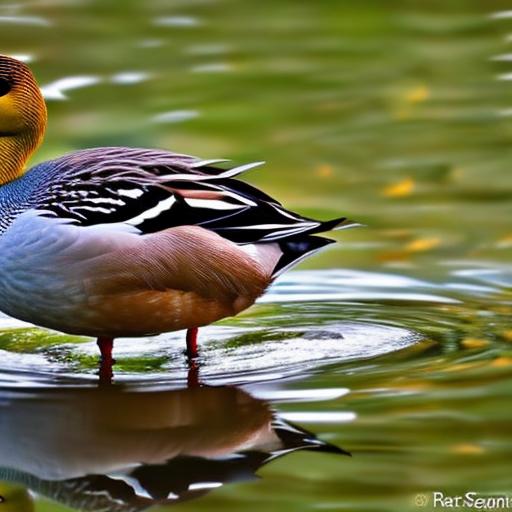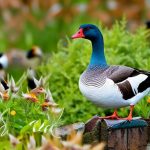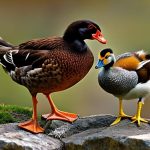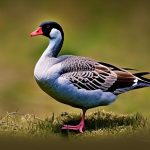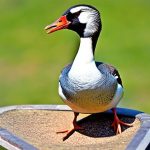Geese and ducks are a common problem for pool owners. These waterfowl are attracted to pools for various reasons, including the availability of water and food sources. Understanding their behavior and identifying the causes of their presence is crucial in effectively deterring them from your pool area.
Key Takeaways
- Geese and ducks are attracted to pools because they provide a source of water and food.
- Natural deterrents such as decoys, plants, and scents can help keep geese and ducks away from your pool.
- Physical barriers like fences and netting can be effective in preventing geese and ducks from accessing your pool.
- Sound and light devices can be used to repel geese and ducks, but they may not be effective in all situations.
- Creating a hostile environment by removing attractive features and maintaining a clean pool area can discourage geese and ducks from settling in.
Understanding the Behavior of Geese and Ducks Around Pools
Geese and ducks are naturally drawn to bodies of water, making pools an attractive spot for them. They are also attracted to the lush greenery and open spaces that often surround pools. Geese and ducks are herbivores, so they feed on grass, aquatic plants, and insects found near the pool area. They may also be attracted to pools as potential nesting sites.
Knowing the behavior of geese and ducks is essential in deterring them from your pool area. For example, understanding their feeding habits can help you remove any potential food sources that may be attracting them. Similarly, knowing their nesting habits can help you identify areas where they may be building nests and take appropriate action to discourage them.
Identifying the Causes of Geese and Ducks in Your Pool
There are several common causes of geese and ducks in pools. One of the main reasons is the availability of food sources such as grass, insects, and aquatic plants. If your pool area has an abundance of these food sources, it is likely to attract geese and ducks.
Another cause could be the presence of nesting sites nearby. Geese and ducks prefer nesting in areas with tall grass or shrubs near water bodies. If your pool area provides suitable nesting sites, it may attract these waterfowl.
Identifying the cause of geese and ducks in your pool is crucial in finding the appropriate solution. By addressing the underlying cause, you can effectively deter them from settling in your pool area.
Natural Deterrents for Geese and Ducks
There are several natural deterrents that can be used to discourage geese and ducks from your pool area. One effective method is planting certain types of vegetation that are unattractive to these waterfowl. For example, tall grasses and shrubs with thorns can make it difficult for geese and ducks to access the pool area.
Another natural deterrent is the use of decoys. Geese and ducks are social animals, so placing decoys of predators such as owls or hawks near the pool can deter them from settling in the area. These decoys create a sense of danger and make the pool area less inviting for geese and ducks.
While natural deterrents can be effective, their success may vary depending on the specific situation and the behavior of the geese and ducks in your area.
Installing Physical Barriers to Keep Geese and Ducks Out
Physical barriers can be an effective way to keep geese and ducks out of your pool area. Fences or netting can be installed around the pool to create a physical barrier that prevents these waterfowl from accessing the water.
When installing physical barriers, it is important to ensure that they are properly secured and do not have any gaps or openings that geese and ducks can squeeze through. Regular maintenance and inspection of these barriers are also necessary to ensure their effectiveness.
Using Sound and Light to Repel Geese and Ducks
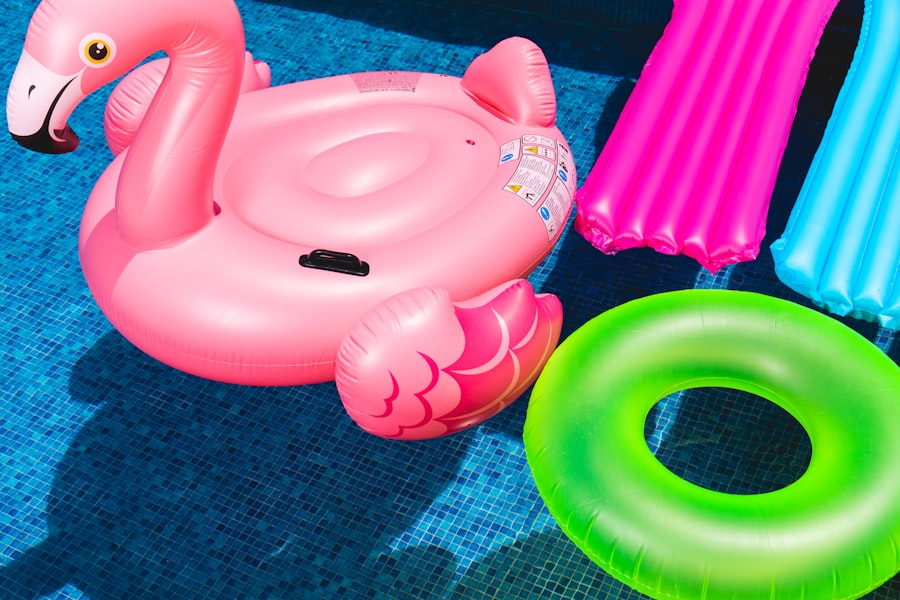
Sound and light deterrents can be used to repel geese and ducks from your pool area. Alarms or noise-making devices that emit loud sounds can startle these waterfowl and discourage them from settling in the area. Similarly, lasers or strobe lights can create a visual disturbance that makes the pool area less appealing to geese and ducks.
When using sound and light deterrents, it is important to consider the impact on other wildlife or neighbors. These methods should be used responsibly and in accordance with local regulations.
Creating a Hostile Environment for Geese and Ducks
Creating a hostile environment for geese and ducks can be an effective way to deter them from your pool area. One method is using sprinklers that are motion-activated. When geese or ducks approach the pool area, the sprinklers will turn on, creating an unpleasant experience for them.
Motion-activated devices that emit bursts of air or water can also be used to startle geese and ducks and discourage them from settling in the area. These devices can be strategically placed around the pool to create a hostile environment for these waterfowl.
Removing Attractive Features Around Your Pool
To prevent geese and ducks from settling in your pool area, it is important to remove any attractive features that may be drawing them in. This includes removing food sources such as grass, insects, and aquatic plants. Regularly mowing the grass and removing any fallen leaves or debris can help eliminate potential food sources.
Other features that may attract geese and ducks include bird feeders or bird baths. If you have these features near your pool, consider relocating them to a different area of your property to discourage geese and ducks from visiting your pool area.
Encouraging Geese and Ducks to Find a New Habitat
Encouraging geese and ducks to find a new habitat is another effective way to deter them from your pool area. One method is using decoys of predators such as owls or hawks. These decoys create a sense of danger and make the pool area less inviting for geese and ducks.
Removing nesting materials such as tall grass or shrubs near the pool can also discourage geese and ducks from nesting in the area. By eliminating potential nesting sites, you make your pool area less attractive to these waterfowl.
Seeking Professional Help to Deal with Geese and Ducks
In some cases, it may be necessary to seek professional help to deal with geese and ducks in your pool area. Professional wildlife control experts have the knowledge and experience to effectively deter these waterfowl and prevent them from settling in your pool.
When seeking professional help, it is important to find a reputable professional who specializes in wildlife control. They should have the necessary permits and licenses to handle geese and ducks in a humane and legal manner.
Maintaining a Clean and Tidy Pool Area to Prevent Geese and Ducks from Settling In
Maintaining a clean and tidy pool area is crucial in preventing geese and ducks from settling in. Regularly removing debris such as fallen leaves or branches can eliminate potential nesting materials for these waterfowl. Covering the pool when not in use can also prevent geese and ducks from accessing the water.
Regular maintenance of the pool area, including cleaning the pool and ensuring proper filtration, can also help deter geese and ducks. A clean pool is less likely to attract these waterfowl as they prefer bodies of water that are stagnant or have an abundance of algae.
Geese and ducks can be a nuisance for pool owners, but understanding their behavior and identifying the causes of their presence can help effectively deter them. Natural deterrents, physical barriers, sound and light deterrents, creating a hostile environment, removing attractive features, encouraging them to find a new habitat, seeking professional help, and maintaining a clean and tidy pool area are all strategies that can be used to prevent geese and ducks from settling in your pool area. By taking action, you can enjoy your pool without the hassle of dealing with these waterfowl.
If you’re tired of dealing with geese and ducks invading your pool, you’ll definitely want to check out this informative article on how to keep them out. It offers practical tips and strategies to deter these water-loving birds from turning your pool into their personal playground. From installing pool covers to using decoys and repellents, this article provides effective solutions to ensure a hassle-free swimming experience. For more details, click here: https://poultrywizard.com/keeping-chickens/what-kind-of-coop-is-best-for-chickens/.
FAQs
What are some common problems caused by geese and ducks in pools?
Geese and ducks can leave behind droppings, feathers, and other debris in the pool, which can make it unsanitary and unappealing to swim in. They can also damage pool equipment and liners with their sharp claws and beaks.
What are some effective ways to keep geese and ducks out of the pool?
Some effective ways to keep geese and ducks out of the pool include installing a pool cover, using decoys or scare devices, and creating physical barriers such as fences or netting. It is also important to remove any food sources or nesting materials that may attract them to the pool area.
Are there any humane methods for keeping geese and ducks away from the pool?
Yes, there are several humane methods for keeping geese and ducks away from the pool. These include using decoys or scare devices that mimic natural predators, such as owls or hawks, and creating physical barriers that prevent them from accessing the pool area.
What should I do if geese or ducks have already made a nest near my pool?
If geese or ducks have already made a nest near your pool, it is important to leave it undisturbed until the eggs have hatched and the birds have left the area. Once they have left, you can remove the nest and take steps to prevent them from returning in the future.
Can geese and ducks be harmful to humans?
Geese and ducks are generally not harmful to humans, but they can carry diseases such as avian influenza and salmonella. It is important to avoid direct contact with them and to wash your hands thoroughly after handling any materials that may have come into contact with their droppings or feathers.
Meet Walter, the feathered-friend fanatic of Florida! Nestled in the sunshine state, Walter struts through life with his feathered companions, clucking his way to happiness. With a coop that’s fancier than a five-star hotel, he’s the Don Juan of the chicken world. When he’s not teaching his hens to do the cha-cha, you’ll find him in a heated debate with his prized rooster, Sir Clucks-a-Lot. Walter’s poultry passion is no yolk; he’s the sunny-side-up guy you never knew you needed in your flock of friends!

